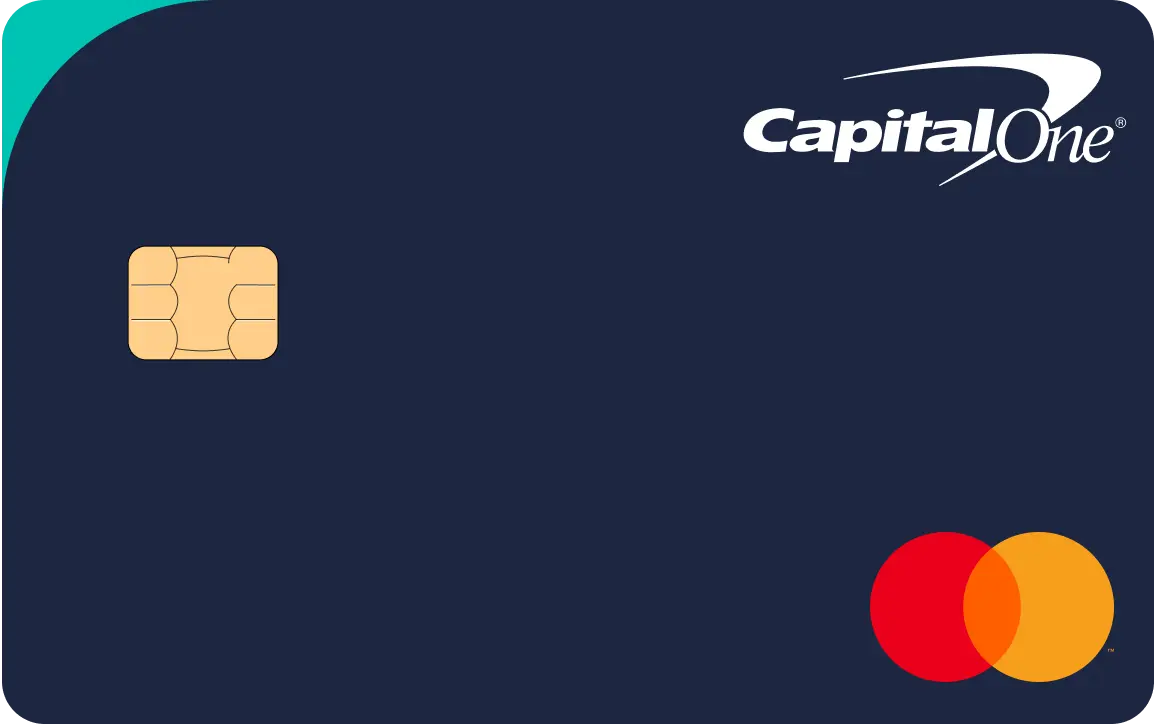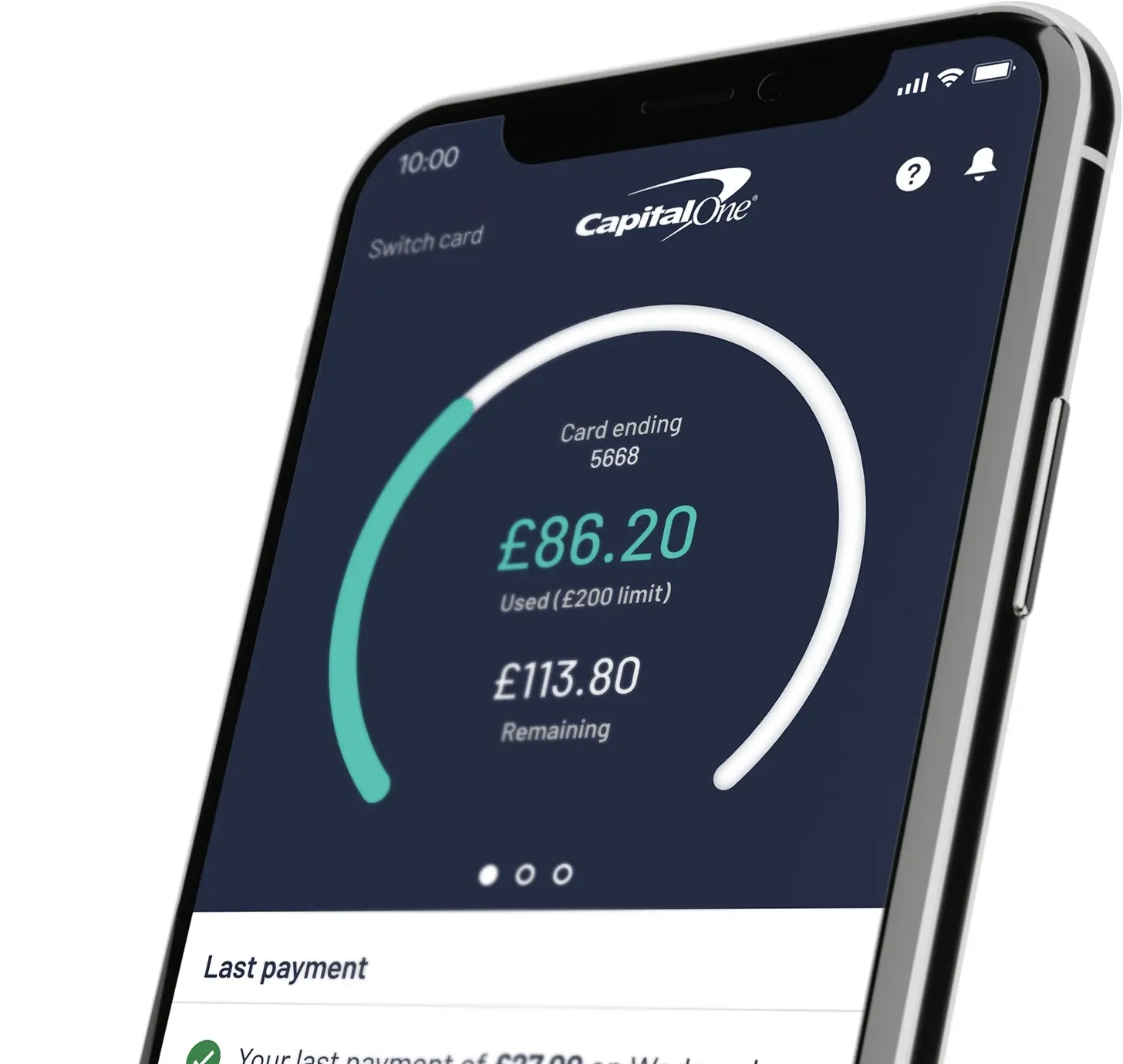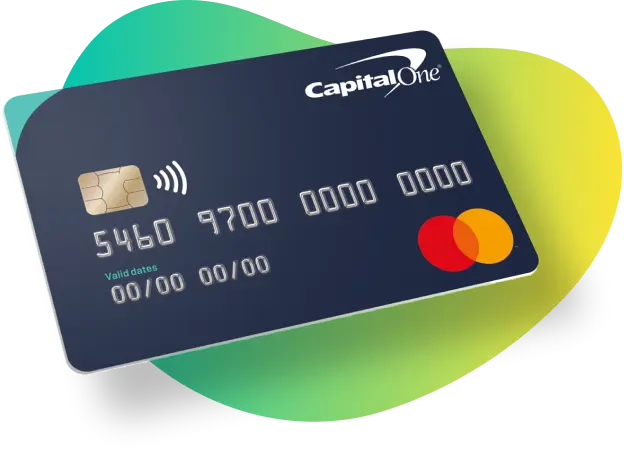Our credit cards
There are lots of different credit cards out there. We're putting all of ours on the table, so you can compare and find one that's right for you.
Classic Card
A card for everyday spends, spreading costs and building your credit score.
- £200 - £1,500 starting credit limit
- Get up to 2 credit increases a year
- Build your credit score over time
34.9% APR representative variable.
Not using your card responsibly could hurt your credit rating, making it harder to get credit in future.
Balance Transfer Card
Save on interest when you move higher rate balances to this card.
- Up to £8,000 starting credit limit
- 0% interest on balance transfers for up to 18 months (3% transfer fee)
- 0% interest on purchases for 3 months
Representative example: Assuming a credit limit of £1,200 and an interest rate on purchases of 34.94% p.a. variable, you will receive a 34.9% APR representative variable.
There's more to a Capital One card
Award-winning app
Flexible credit limits
No nasty surprises
It's easy to check if you're eligible
- 1
Fill in some details
Answer some questions to help us learn more about you and your finances.
- 2
Get a clear yes or no
We'll let you know if you're eligible straight away, without affecting your credit score.
- 3
Apply for your card
If you're eligible and you think the card's right for you, apply in one tap of a button.
Credit cards come in all shapes and sizes
When you're looking for credit card deals, things can seem complicated. To help, here are some of the most common credit cards and credit card offers you'll find:
FAQs
Need more help?
If you're unsure about anything on this page or would like some more info, try our FAQs page. If you can't find what you're looking for you can contact our team.


